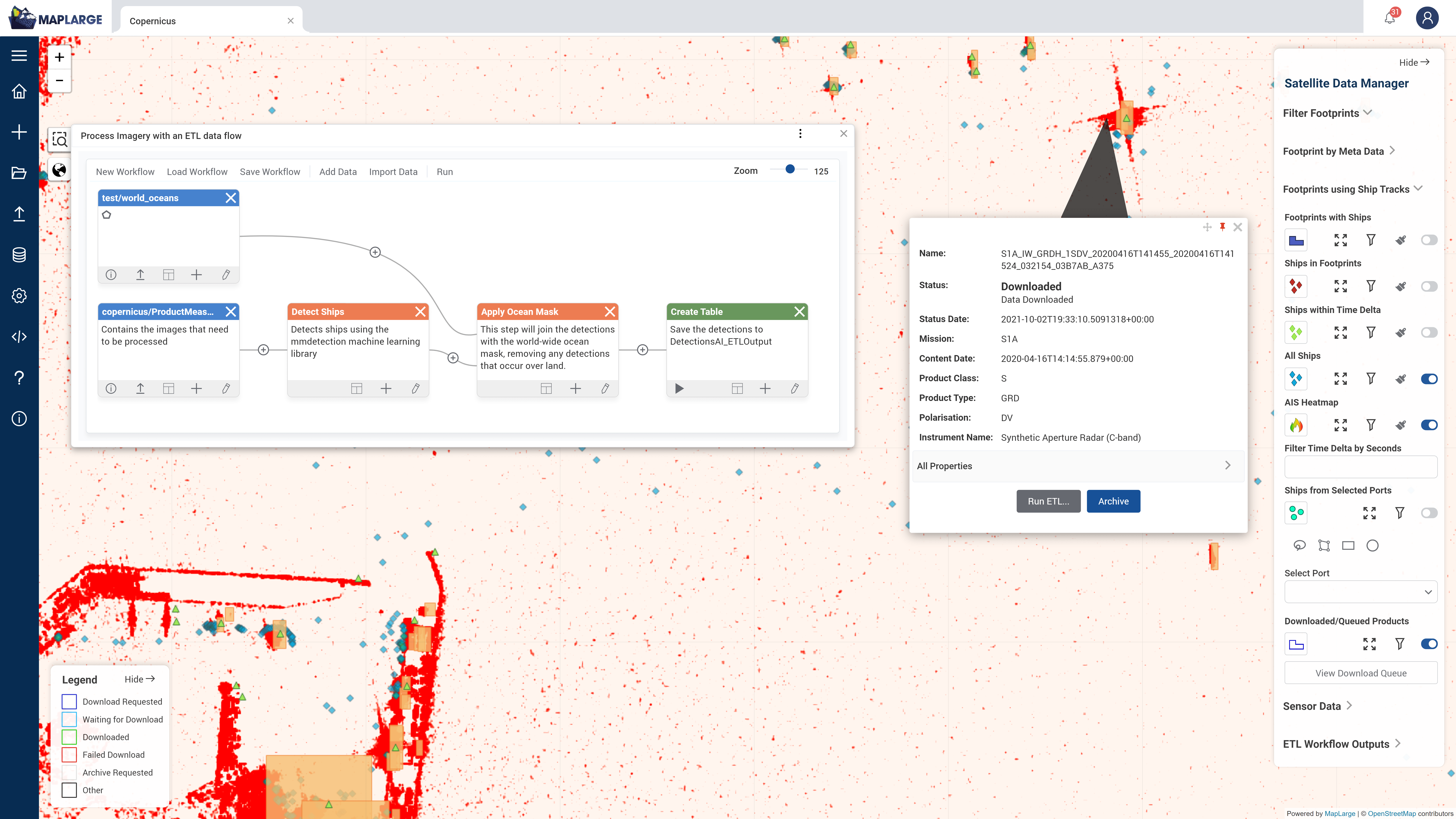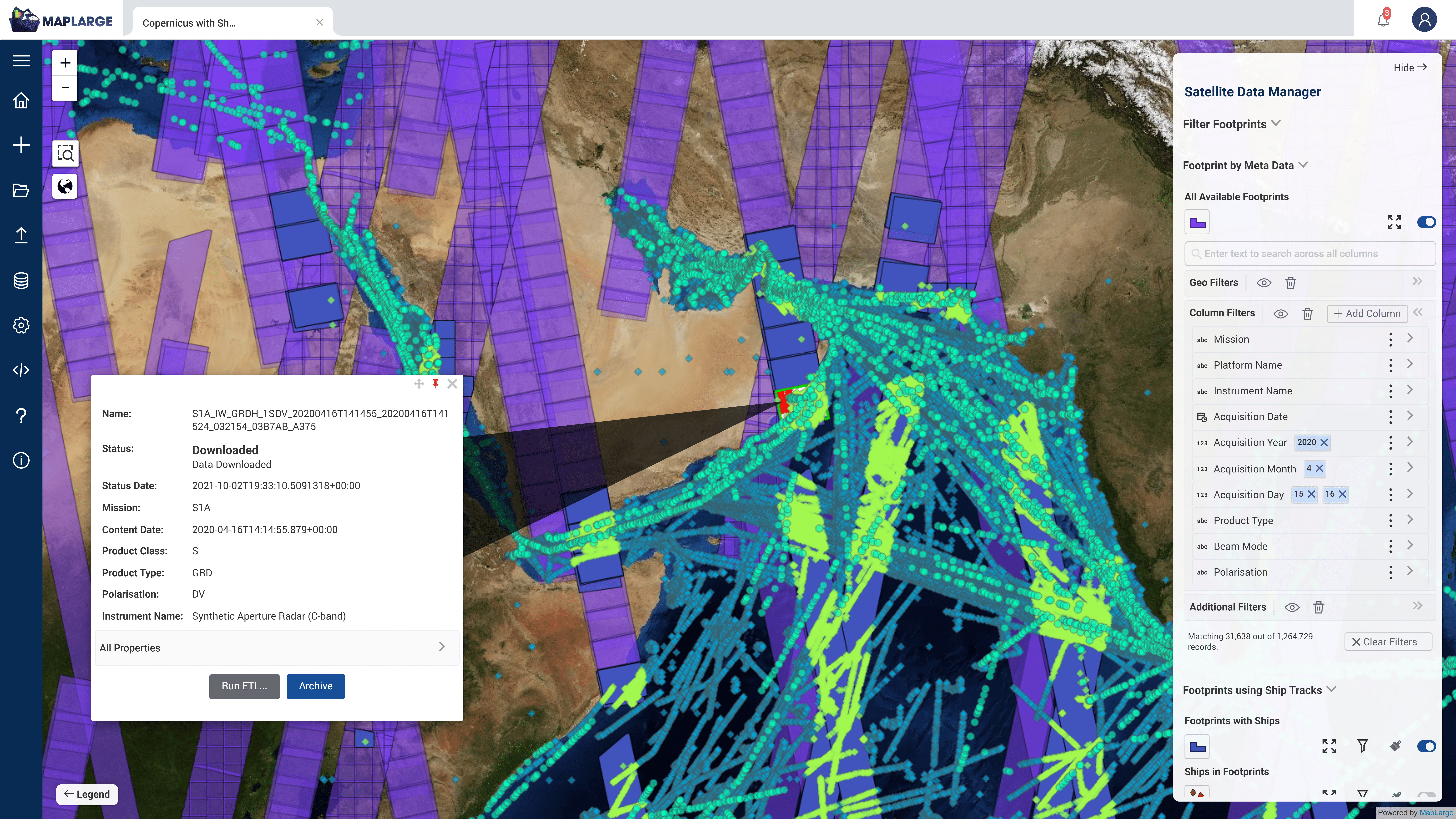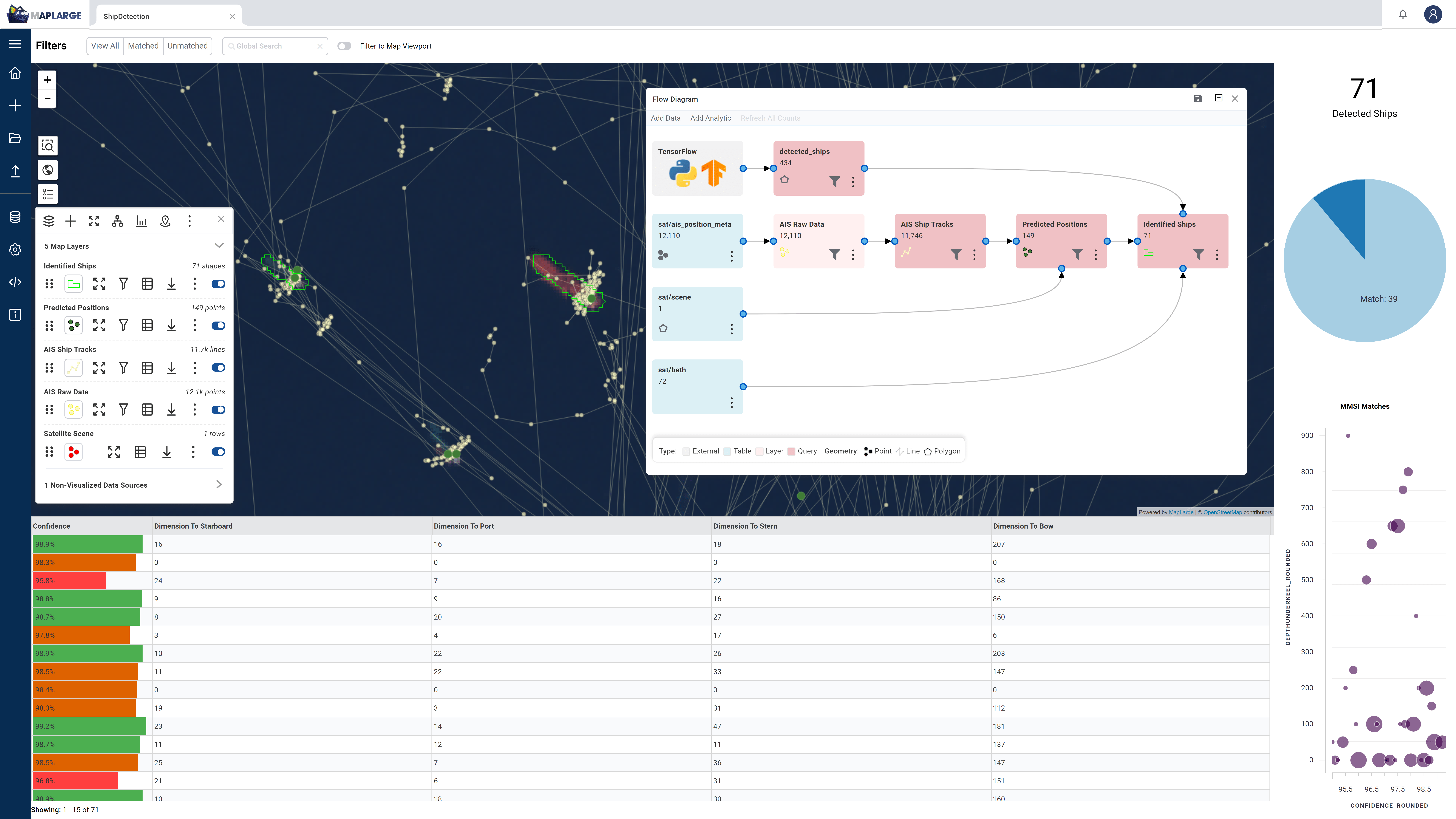Expedite data science prototypes to production through model-ready analytic tooling.
MapLarge aids data scientists in productionalized machine learning or 'ML Ops' by providing a data analytics suite of capabilities spanning a 6-step ML Ops process. This engineering process addresses use case requirements from problem definition through production deployment of machine learning models. These steps include:
1. Problem Definition and Framing: articulating the use case with relevant machine learning approaches and analytic methods applicable to the problem.
2. Data Sourcing & Acquisition: identifying and accessing the pertinent data types and data classes in a common analysis platform.
3. Data Handling & Storage: creating ETL workflows supporting ingest, transformation, transport, storage, and monitoring.
4. Data Manipulation & Preparation: employing an ETL workflow to clean, prepare, manipulate, and segment data for testing and validation.
5. Build, Test, Evaluate, Iterate, and Optimize: developing or accessing a model using machine learning tools, services, and frameworks. The wrapping or integrating of a model into an ETL workflow for model maturation.
6. Production Model Deployment: deploying and managing the model’s lifecycle from application stack integration through retirement.
Use Production-Grade Data Analytics for Data Science Prototyping at Scale
MapLarge provides In-house data scientists and software engineers data analytic tools to support the artificial intelligence and machine learning model lifecycle on production scale data. MapLarge’s ETL Notebooks feature allows R&D teams to deploy models on production data without requiring a re-factor to operationalize. In addition to its own internal notebooks MapLarge also supports integration with Jupyter Notebooks, Atom Hydrogen, R, Python, Open Neural Networx Exchange (ONNX), TensorFlow, PyTorch, ML.Net and many others.


Accelerate Data Science Driven Apps via Open Standards and Community Ecosystem Support
MapLarge helps enterprises connect their in-house staff and proprietary data/systems to tools, services, libraries, and environments available to the broader data science ecosystem. By using MapLarge’s ETL Notebooks feature, these external integrations are realized with faster time-to-value in a compliant, auditable, and traceable solution methodology.
Provide Flexible Coding Options for Data Scientists and Software Engineers
MapLarge’s extensibility provides data scientists freedom in language choice (Python, R, Node, & C#), libraries, and ecosystems support based on preference and comparative advantage. For software engineers, the platform supports common object-oriented and web framework languages: C++, C#, Java, Javascript, Typescript, and Python.
